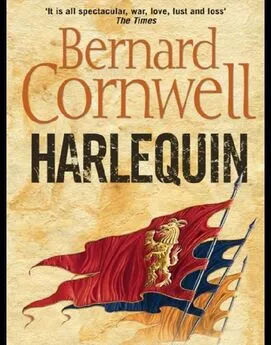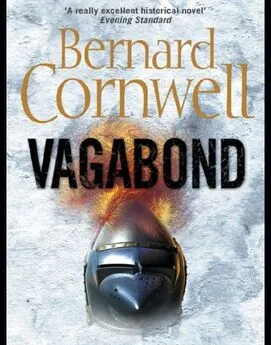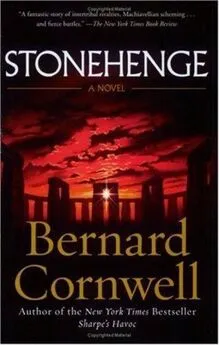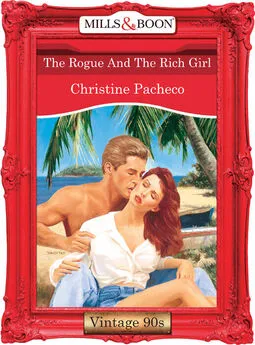Bernard Cornwell - The Grail Quest 1 - Harlequin
- Название:The Grail Quest 1 - Harlequin
- Автор:
- Жанр:
- Издательство:неизвестно
- Год:неизвестен
- ISBN:нет данных
- Рейтинг:
- Избранное:Добавить в избранное
-
Отзывы:
-
Ваша оценка:
Bernard Cornwell - The Grail Quest 1 - Harlequin краткое содержание
In the fourteenth century the English were just beginning to discover their national identity, and one of the strongest elements of this was the overwhelming success in battle of the English bowmen.
England′s archers crossed the Channel to lay a country to waste. Thomas of Hookton was one of those archers. When his village is sacked by French raiders, he escapes from his father′s ambition to become a wild youth who delights in the opportunities which war offers - for fighting, for revenge and for friendship.
But Thomas is hounded by his conscience. He has made a promise to God to retrieve a relic stolen in the raid from Hookton′s church. The search for the relic leads him into a world where lovers become enemies, enemies become friends and always, somewhere beyond the horizon that is smeared with the smoke of fires set by the rampaging English army, a terrible enemy awaits him.
That enemy would harness the power of Christendom′s greatest relic - the grail itself. In this, the first book of a new series, Thomas begins the quest that will lead him through the fields of France, until at last the two armies face each other on a hillside near the village of Crecy.
The Grail Quest 1 - Harlequin - читать онлайн бесплатно ознакомительный отрывок
Интервал:
Закладка:
Thomas saw a baffled lance coming at him and he threw himself to the ground where he curled into a ball and let the heavy horses crash by.
Montjoie Saint Denis!" the voices yelled above him as the Count of Astarac's conroi struck home.
Sir Guillaume d'Evecque had seen nothing like it. He hoped he never saw it again. He saw a great army breaking itself against a line of men on foot.
It was true that the battle was not lost and Sir Guillaume had convinced himself it could yet be won, but he was also aware of an unnatural sluggishness in himself. He liked war. He loved the release of battle, he relished imposing his will on an enemy and he had ever profited from combat, yet he suddenly knew he did not want to charge up the hill. There was a doom in this place, and he pushed that thought away and kicked his spurs back. Montjoie Saint Den is!" he shouted, but knew he was just pretending the enthusi-asm. No one else in the charge seemed afflicted by doubts. The knights were beginning to jostle each other as they strove to aim their lances at the English line. Very few arrows were flying now, and none at all were coming from the chaos ahead where the Prince of Wales's banner flew so high. Horsemen were now charging home all along the line, hacking at the English ranks with swords and axe, but more and more men were angling across the slope to join the fury on the English right. It was there, Sir Guillaume told him-self, that the battle would be won and the English broken. It would be hard work, of course, and bloody work, hacking through the prince's troops, but once the French horsemen were in the rear of the English line it would collapse like rotted wood, and no amount of reinforcements from the top of the hill could stop that panicked rout. So fight, he told himself, fight, but there was still the nagging fear that he was riding into disaster. He had never felt anything like it and he hated it, cursing himself for being a coward!
A dismounted French knight, his helmet's face-piece torn away and blood dripping from a hand holding a broken sword, while his other hand gripped the remnants of a shield that had been split into two, staggered down the hill, then dropped to his knees and vomited. A riderless horse, stirrups flapping, galloped white-eyed across the line of the charge with its torn trapper trailing in the grass. The turf here was flecked by the white feathers of fallen arrows that looked like a field of flowers.
Go! Go! Go!" Sir Guillaume shouted at his men, and knew he was shouting at himself. He would never tell men to go on a battle-field, but to come, to follow, and he cursed himself for using the word and stared ahead, looking for a victim for his lance, and he watched for the pits and tried to ignore the melee that was just to his right. He planned to widen the melee by boring into the English line where it was still lightly engaged. Die a hero, he told himself carry the damned lance right up the hill and let no man ever say that Sir Guillaume d'Evecque was a coward.
Then a great cheer sounded from his right and he dared look there, away from the pits. He saw the Prince of Wales's great banner was toppling into the struggling men. The French were cheering and Sir Guillaume's gloom lifted magically for it was a French banner that pressed ahead, going over the place where the Prince's flag had flown, and then Sir Guillaume saw the banner. He saw it and stared at it. He saw a yale holding a cup and he pressed his knee to turn his horse and shouted at his men to follow him. To war!" he shouted. To kill. And there was no more sluggishness and no more doubts. For Sir Guillaume had found his enemy. The King saw the enemy knights with the white-crossed shields pierce his son's battle and then he watched his son's banner fall. He could not see his son's black armour. Nothing showed on his face.
Let me go!" the Bishop of Durham demanded.
The King brushed a horsefly from his horse's neck. Pray for him," he instructed the bishop.
What the hell use will prayer be?“ the bishop demanded, and hefted his fearful mace. Let me go, sire!”
I need you here,“ the King said mildly, and the boy must learn as I did.” I have other sons, Edward of England told himself, though none like that one. That son will be a great king one day, a warrior king, a scourge of our enemies. If he lives. And he must learn to live in the chaos and terror of battle. You will stay,“ he told the bishop firmly, then beckoned a herald. That badge,” he said, pointing to the red banner with the yale, whose is it?" The herald stared at the banner for a long time, then frowned as if uncertain of his opinion.
Well?" the King prompted him.
I haven't seen it in sixteen years,“ the herald said, sounding dubious of his own judgement, but I do believe it's the badge of the Vexille family, sire.”
The Vexilles?" the King asked.
Vexilles?“ the bishop roared. Vexilles! Damned traitors. They fled from France in your great-grandfather's reign, sire, and he gave them land in Cheshire. Then they sided with Mortimer.” Ah," the King said, half smiling. So the Vexilles had supported his mother and her lover, Mortimer, who together had tried to keep him from the throne. No wonder they fought well. They were trying to avenge the loss of their Cheshire estates.
The eldest son never left England,“ the bishop said, staring down at the widening struggle on the slope. He had to raise his voice to be heard above the din of steel. He was a strange fellow. Became a priest! Can you credit it? An eldest son! Didn't like his father, he claimed, but we locked him up all the same.”
On my orders?" the King asked.
You were very young, sire, so one of your council made sure the Vexille priest couldn't cause trouble. Sealed him up in a monas-tery, then beat and starved him till he was convinced he was holy. After that he was harmless so they put him into a country parish to rot. He must be dead by now.“ The bishop frowned because the English line was bending backwards, pushed by the conroi of Vexille knights. Let me go down, sire,” he pleaded, I pray you, let me take my men down.
I asked you to pray to God rather than to me.
I have a score of priests praying,“ the bishop said, and so do the French. We're deafening God with our prayers. Please, sire, I beg you!”
The King relented. Go on foot,“ he told the bishop, and with only one conroi.”
The bishop howled in triumph, then slid awkwardly off his destrier's back. Barratt!“ he shouted to one of his men-at-arms. Bring your fellows! Come on!” The bishop hefted his wickedly spiked mace, then ran down the hill, bellowing at the French that the time of their death had come.
The herald counted the conroi that followed the bishop down the slope. Can twenty men make a difference, sire?" he asked the King.
It will make small difference to my son,“ the King said, hoping his son yet lived, but a great difference to the bishop. I think I would have had an enemy in the Church for ever if I'd not released him to his passion.” He watched as the bishop thrust the rear English ranks aside and, still bellowing, waded into the melee. There was still no sign of the prince's black armour, nor of his standard. The herald backed his palfrey away from the King, who made the sign of the cross, then twitched his ruby-hilted sword to make certain the day's earlier rain had not rusted the blade into the scabbard's metal throat. The weapon moved easily enough and he knew he might need it yet, but for now he crossed his mailed hands on his saddle's pommel and just watched the battle.
He would let his son win it, he decided. Or else lose his son. The herald stole a look at his king and saw that Edward of Eng-land's eyes were closed. The King was at prayer. The battle had spread along the hill. Every part of the English line was engaged now, though in most places the fighting was light. The arrows had taken their toll, but there was none left and so the French could ride right up to the dismounted men-at-arms. Some Frenchmen tried to break through, but most were content to shout insults in the hope of drawing a handful of the dismounted English out of the shield wall. But the English discipline held. They returned insult for insult, inviting the French to come and die on their blades. Only where the Prince of Wales's banner had flown was the fighting ferocious, and there, and for a hundred paces on either side, the two armies had become inextricably tangled. The English line had been torn, but it had not been pierced. Its rear ranks still defended the hill while the front ranks had been scattered into the enemy where they fought against the surrounding horsemen. The Earls of Northampton and Warwick had tried to keep the line steady, but the Prince of Wales had broken the formation by his eagerness to carry the fight to the enemy and the Prince's bodyguard were now down the slope near to the pits where so many horses lay with broken legs. It was there that Guy Vexille had lanced the Prince's standard-bearer so that the great flag, with its hues and leopards and gilded fringe, was being trampled by the iron-shod hoofs of his conroi.
Thomas was twenty yards away, curled into the bloody belly of a dead horse and flinching every time another destrier trod near him. Noise overwhelmed him, but through the shrieks and hammering he could hear English voices still shouting defiance and he lifted his head to see Will Skeat with Father Hobbe, a handful of archers and two men-at-arms defending themselves against French horsemen. Thomas was tempted to stay in his blood-reeking haven, but he forced himself to scramble over the horse's body and run to Skeat's side. A French sword glanced off his helmet, he bounced off the rump of a horse, then stumbled into the small group.
Still alive, lad?" Skeat said.
Jesus," Thomas swore.
He ain't interested. Come on, you bastard! Come on!“ Skeat was calling to a Frenchman, but the enemy preferred to carry his unbroken lance towards the battle raging about the fallen standard. They're still coming,” Skeat said in tones of wonderment. No end to the goddamn bastards."
An archer in the prince's green and white livery, without a helmet and bleeding from a deep shoulder wound, lurched towards Skeat's group. A Frenchman saw him, casually wheeled his horse and chopped down with a battle-axe.
The bastard!" Sam said, and, before Skeat could stop him, he ran from the group and leaped up onto the back of the Frenchman's horse. He put an arm round the knight's neck then simply fell backwards, dragging the man from the high saddle. Two enemy men-at-arms tried to intervene, but the victim's horse was in their way.
Protect him!“ Skeat shouted, and led his group to where Sam was beating fists at the Frenchman's armour. Skeat pushed Sam away, lifted the Frenchman's breastplate just enough to let a sword enter, then slid his blade into the man's chest. Bastard,” Skeat said. Got no right to kill archers. Bastard." He twisted the sword, rammed it in further, then yanked it free.
Sam lifted the battle-axe and grinned. Proper weapon,“ he said, then turned as the two would-be rescuers came riding in. Bastards, bastards,” Sam shouted as he chopped the axe at the nearer horse. Skeat and one of the men-at-arms were flailing swords at the other beast. Thomas tried to protect them with his shield as he stabbed up at the Frenchman and felt his sword deflected by shield or armour, then the two horses, both bleeding, wheeled away. Stay together,“ Skeat said,'s tay together. Watch our backs, Tom.” Thomas did not answer.
Tom!" Skeat shouted.
But Thomas had seen the lance. There were thousands of lances on the field, but most of them were painted in spiralling colours, and this one was black, warped and feeble. It was the lance of Saint George that had hung in the cobwebs of his childhood nave and now it was being used as the pole of a standard and the flag that hung from the silver blade was red as blood and embroidered with a silver yale. His heart lurched. The lance was here! All the mysteries he had tried so hard to avoid were on this battlefield. The Vexilles were here. His father's killer was probably here.
Читать дальшеИнтервал:
Закладка:





![Робин Хобб - Странствия Шута [Fool’s Quest]](/books/1086209/robin-hobb-stranstviya-shuta-fool-s-quest.webp)

